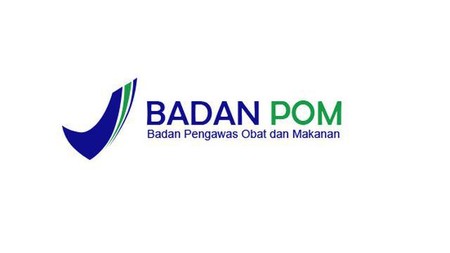
Understanding BPOM: Ensuring the Safety of Food, Drugs, and Cosmetics in Indonesia
Share
When it comes to consumer products like food, beverages, cosmetics, and pharmaceutical drugs, safety is paramount. In Indonesia, the Badan Pengawas Obat dan Makanan (BPOM), or the National Agency for Drug and Food Control, plays a crucial role in ensuring that products available in the market meet strict health and safety standards. Whether you’re a business owner looking to enter the Indonesian market or a consumer concerned about product safety, understanding BPOM’s role is essential.
What is BPOM?
BPOM is Indonesia’s governmental body responsible for overseeing the regulation and supervision of drugs, food, and cosmetics. The agency ensures that products in the market are safe, effective, and of high quality for the public. BPOM’s main mission is to protect consumers from harmful substances, mislabeling, counterfeit products, and any other risks that could affect public health.
The agency operates under the Indonesian Ministry of Health and is empowered by the Law No. 36 of 2009 on Health, which mandates its authority in the regulation and monitoring of food, drugs, and cosmetics in the country.
Key Functions of BPOM
BPOM's role extends beyond just approving products; it encompasses a wide range of activities aimed at protecting the health of consumers:
-
Product Registration & Approval
- Before any pharmaceutical, food, or cosmetic product can be marketed in Indonesia, it must be registered with BPOM. This ensures that products meet the required safety, efficacy, and quality standards. BPOM reviews the ingredients, labels, production processes, and other critical factors before granting approval.
-
Monitoring & Inspection
- BPOM conducts regular inspections of manufacturers, distributors, and retailers to ensure that products on the market are compliant with safety regulations. This also includes monitoring products for any potential harmful effects on consumers’ health.
-
Consumer Education
- BPOM also focuses on public awareness campaigns regarding safe consumption of food, drugs, and cosmetics. By educating consumers, BPOM helps prevent health issues related to improper product use, counterfeit goods, and risky consumption habits.
-
Enforcement & Regulation
- If BPOM identifies any violations, it has the authority to take action, including product recalls, fines, or even criminal charges against businesses that fail to comply with the regulations. BPOM’s enforcement ensures that both local and international companies maintain high standards of health and safety.
-
Certification Programs
- BPOM is also responsible for certifying that products are Halal (for food and beverages) or meeting specific local regulations. For example, Halal certification is vital for the Muslim population in Indonesia, and BPOM works in coordination with the Indonesian Ulema Council (MUI) to issue this certification.
Why BPOM is Important for Businesses
If you are planning to launch a product in Indonesia, BPOM registration is not just a legal requirement, but it is also a step toward building consumer trust. BPOM's seal of approval signals to the Indonesian public that a product is safe, reliable, and meets rigorous standards. This can be a strong selling point, especially in competitive markets like food, beverages, pharmaceuticals, and cosmetics.
Here’s why BPOM registration matters for businesses:
- Market Access: Without BPOM approval, you cannot legally sell your product in Indonesia. BPOM ensures that only safe products reach consumers.
- Credibility & Trust: Consumers are more likely to purchase products that have been vetted by BPOM, knowing that they are tested for safety and quality.
- Compliance: BPOM ensures that businesses adhere to Indonesia’s health regulations, preventing costly legal issues down the line.
How to Register a Product with BPOM
For businesses wanting to sell their products in Indonesia, registering with BPOM is a detailed process that requires submitting various documents and passing specific tests. The process typically includes:
- Product Documentation: Companies must submit detailed documentation, including the product's ingredients, production methods, and labeling.
- Laboratory Testing: Products may need to undergo laboratory tests to ensure they meet safety and quality standards.
- Approval Process: Once BPOM reviews all documents and test results, it will issue the product registration approval, allowing the product to be legally marketed.
The registration process can be time-consuming, so working with a local consultant or regulatory expert can help expedite the process and ensure all requirements are met.
BPOM and Consumer Protection
BPOM's regulatory activities also focus on protecting consumers from counterfeit or unsafe products. As the market for online shopping continues to grow, BPOM has ramped up its efforts to tackle the distribution of counterfeit medicines, food products, and cosmetics. This includes monitoring e-commerce platforms and conducting raids to ensure that products sold online are legitimate and safe.
Additionally, BPOM also investigates complaints from consumers regarding harmful products and takes action where necessary. The agency's role in consumer protection is critical to maintaining public health standards in Indonesia.
Conclusion
BPOM plays a vital role in safeguarding the health and well-being of the Indonesian public by ensuring that food, drugs, and cosmetics meet high safety and quality standards. For businesses, obtaining BPOM approval is not just a legal requirement but also a valuable step in building trust with Indonesian consumers. By understanding the processes and regulations enforced by BPOM, businesses can navigate the market more effectively, while consumers can have peace of mind knowing that the products they use are safe and regulated.
If you're a business owner looking to expand to Indonesia or a consumer curious about product safety, BPOM is the key institution ensuring the integrity of goods in the market.
